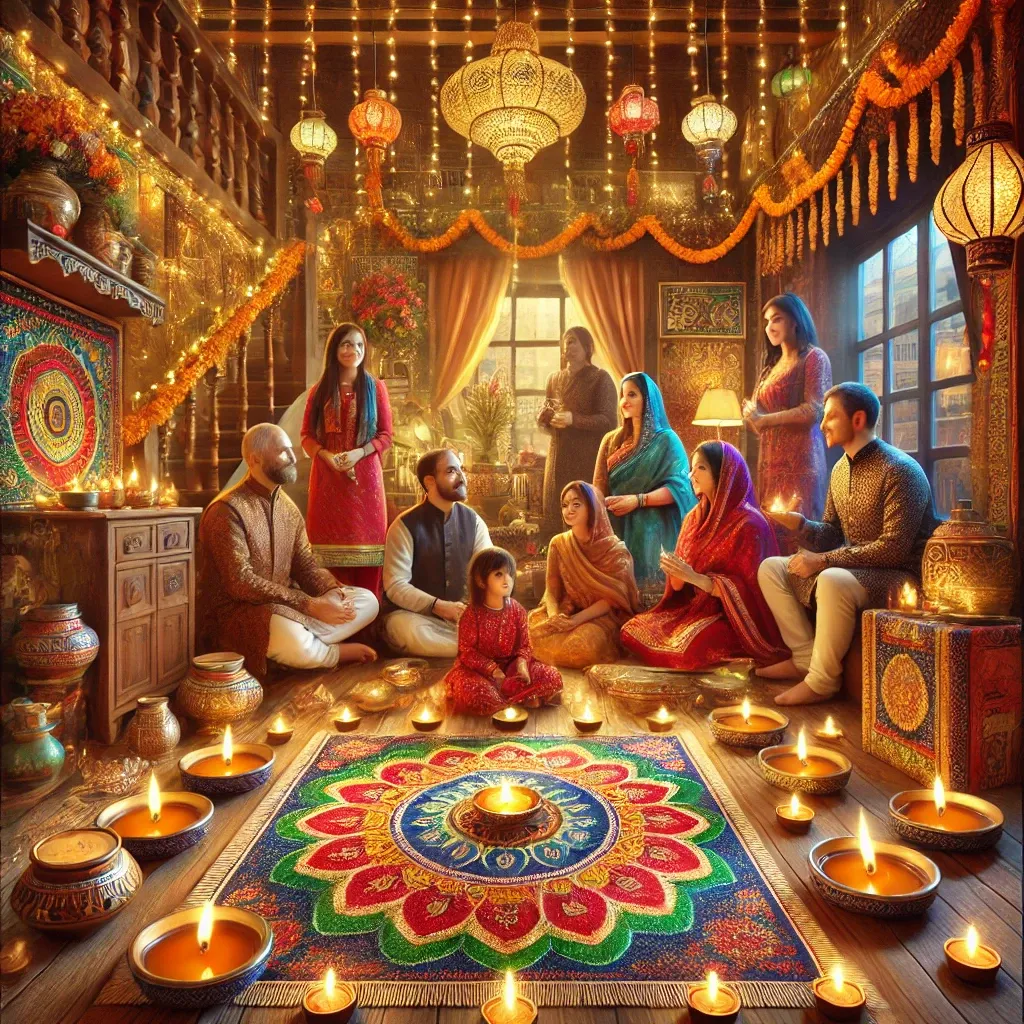Diwali: The Festival of Lights, Joy, and TogethernessDiwali, also known as the Festival of Lights, is celebrated across India and various parts of the world, bringing communities together in vibrant, colorful festivities. What makes Diwali so special? From stunning decorations and mesmerizing rangolis to sharing delicious sweets with loved ones, Diwali embodies the spirit of joy, hope, and renewal.
Diwali: A Celebration of Light and Spirit
Diwali is one of the most significant festivals celebrated by millions, marking the triumph of light over darkness and good over evil. Rooted in ancient traditions and mythology, Diwali transcends religious boundaries, uniting people through the themes of happiness, prosperity, and gratitude. During this festival, homes are adorned with earthen diyas, or oil lamps, symbolizing enlightenment and wisdom. This time-honored tradition of lighting diyas dates back thousands of years and is still cherished, illuminating homes and hearts alike.Families often come together, exchanging gifts, sharing traditional sweets, and expressing gratitude. Many take this opportunity to clean and redecorate their homes, symbolizing a fresh start. A colorful rangoli, an art form using vibrant powders and petals, is typically crafted at entrances to welcome guests. These intricate designs highlight the artistic spirit of Diwali, with patterns ranging from simple floral arrangements to complex geometric designs.
- Diwali diyas are traditionally made from clay and filled with oil.
- In addition to lighting diyas, many people now use string lights to brighten their homes.
- Rangoli designs vary by region, with each state having its unique style.
- Homes are often cleaned, painted, and decorated for a fresh start.
- Many people offer prayers for health, wealth, and happiness during Diwali.
- In some regions, fireworks are used to celebrate the occasion.
Diwali is more than just a festival; it’s an expression of love, unity, and cultural pride, celebrated with a joyful heart by people of all ages.
Diwali Food: A Feast of Flavor and Tradition
Diwali is also synonymous with indulgent food, especially sweets. From traditional mithai to modern-day fusion sweets, Diwali offers a delightful spread of treats that make this festival truly delicious. Sweets like laddoos, barfis, jalebis, and gulab jamuns are popular choices, often made in large quantities to share with friends and family. Additionally, savory snacks like samosas, chaklis, and mathris add to the festive menu, offering a balance of flavors that satisfy every palate.Food is central to Diwali, as families prepare delicacies together, celebrating the festival in kitchens and dining rooms. The process of making sweets and snacks is often a family affair, passing down recipes and techniques through generations. Not only do these foods taste good, but they also carry symbolic meanings, representing prosperity, good fortune, and sweetness in life.
- Laddoos are round, sweet treats made from gram flour, sugar, and ghee.
- Barfi, made from milk solids, is available in a variety of flavors, including pistachio and coconut.
- Jalebi, a deep-fried dessert soaked in sugar syrup, is a crowd favorite.
- Gulab jamun, made from khoya and sugar syrup, is often served warm.
- Savory snacks like samosas add a spicy element to the Diwali feast.
- Many families prepare large batches to share with neighbors and friends.
Diwali’s culinary traditions are a celebration of flavors, textures, and family bonds, making every bite meaningful.
Diwali Festival: Traditions and Modern Celebrations
The Diwali festival has evolved over time, adapting to the customs and preferences of each generation while maintaining its core values. Traditional elements such as lighting diyas, performing puja, and wearing new clothes remain significant. However, in modern celebrations, eco-friendly practices are becoming more common. Many people now prefer using biodegradable decorations and avoiding firecrackers to celebrate Diwali responsibly.In recent years, the concept of gifting has also expanded to include not only sweets and clothing but also eco-friendly products, artisanal crafts, and other thoughtful gifts. The festival has seen a shift towards sustainable practices, encouraging people to be mindful of their choices and the environment.
- Diyas are now available in eco-friendly materials.
- Rangoli powders are often organic and natural.
- Many families opt for LED lights to save energy.
- Fireworks are reduced or replaced with laser shows in some cities.
- Traditional gifts are complemented by eco-friendly options.
- Festivities often include online gatherings, allowing families to connect across distances.
Diwali continues to thrive as a festival that blends the old with the new, celebrating heritage while embracing positive changes.
Conclusion
Diwali is a time to celebrate light, love, and the bonds that bring us together. This festival has endured through centuries, adapting and evolving yet preserving its essence of joy and unity. As Mahatma Gandhi once said, “Be the change you wish to see in the world.” Diwali is a time to embrace this spirit of positive change, illuminating not only our homes but also our lives with hope, kindness, and gratitude.






